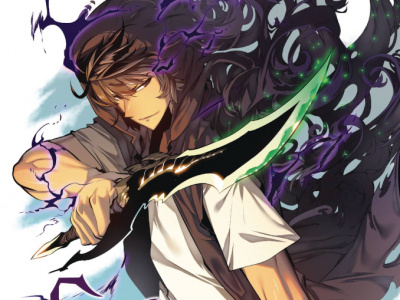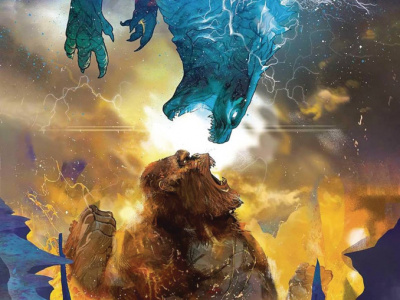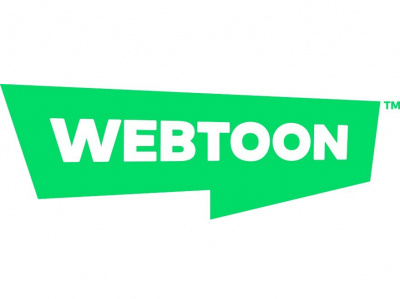 The intellectual property of top characters and storylines are the crown jewels in the era of the superhero blockbuster franchise. As the stakes get higher, the fights over creative rights and recognition get even rougher.
The intellectual property of top characters and storylines are the crown jewels in the era of the superhero blockbuster franchise. As the stakes get higher, the fights over creative rights and recognition get even rougher.This weekend, as Marvel’s Captain America: The Winter Soldier launched the annual superhero movie season with a bang, the estate of Cap’s co-creator soldiered on with another volley in comics’ longest war--the battle over ownership and creative rights to some of the world’s most valuable intellectual property.
The heirs of Jack Kirby and their lawyer Marc Toboroff filed an appeal to the Supreme Court as the latest step in their battle with Marvel Entertainment/Disney over the ownership of key characters in the Marvel Universe.
The Kirby heirs are targeting the specifics of the work for hire arrangement, a tactic that comics legal expert Marc Greenberg thinks might have promise. But the stakes of this case and others like it extend beyond the subtleties of the legal system.
Truth, Justice and/or the American Way. Since the earliest days of comics, creators have come forward challenging corporate ownership of the characters and stories they wrote and drew, ostensibly under work for hire arrangements. And for the most part, courts have consistently sided with the corporations.
The problem is that ordinary experience, common sense and basic decency suggest that the people who invented, designed and told the stories of these characters have an inherent ownership claim, irrespective of legal technicalities. This hits home particularly when the creators pressing the claims are older and down on their luck, and the defendants, who seem to prevail every single time, are multinational corporations of unfathomable wealth.
Comic fans are an idealistic and sentimental lot; that’s part of what keeps grown men and women coming back to see good conquer evil month after month. It’s hard to cheer for Goliath wiping the floor with one hapless David after another even if you can appreciate, on an intellectual level, the merits of the legal arguments.
And it’s not as though this has ever been just a dispassionate economic issue for publishers. As comics scholars like Gerard Jones, Michael Vassallo and Blake Bell among others have shown, the sharp-elbowed gangster capitalists and Depression-era entrepreneurs who founded DC, Marvel and Archie had an almost pathological, class-driven desire to abase and disempower the creative talent as a matter of principle.
A seat at the table? Who do you think you are? The stories of woe don’t end with the golden age, and the abasement of creators is clearly not just about money. Martin Goodman, Harry Donenfeld and the others may be dead and gone but their "show the hired help who’s boss" ethos seems to live on in their corporate successors.
Last week, Sean Howe, author of Marvel: The Untold Story posted the following on behalf of Gerry Conway, the writer of the story that apparently forms the basis of the upcoming The Amazing Spider-Man sequel, to get him an invitation to the movie’s premiere:
…[Y]ou’d think that Sony Pictures could find a seat for Gerry Conway. But according to the author of "The Night Gwen Stacy Died," Sony has yet to acknowledge him.
…Do you think this is acceptable behavior toward creators? Should Gerry Conway have to take to social media to get an invitation the premiere of a movie based on his work? It’s not like he’s asking for any of the QUARTER OF A BILLION DOLLARS the movie is expected to bring in at the box office.
Conway, who wrote the "throw Gwen from the bridge" story, has himself gone out on a limb to not be a pain in the neck. In fact, he is ostentatiously working through channels, last year asking fans to catalog his various creations in an effort to petition DC for a discretionary share of licensing revenues--although they may have discontinued that program after the departure of Paul Levitz.…Do you think this is acceptable behavior toward creators? Should Gerry Conway have to take to social media to get an invitation the premiere of a movie based on his work? It’s not like he’s asking for any of the QUARTER OF A BILLION DOLLARS the movie is expected to bring in at the box office.
Passive-aggressive campaigns like this certainly generate their share of outrage, but they implicitly acknowledge the reality that the law provides no relief for ownership claims rooted in ordinary experience, common sense and morality. All that’s left is to try to shame the shameless and hope for the best.
The first rule of Fight Club. Stories circulate that some within the big companies quietly make good on creator claims. Bill Mantlo, the writer who developed characters integral to the upcoming Guardians of the Galaxy movie and is now in poor health, appears to be the beneficiary of some corporate charity. ("You are way off base with accusations that Marvel has not compensated Bill adequately," writes his brother and legal guardian Michael Mantlo). The same may be true for the family of the late Dave Cockrum, according to the website Comics Bulletin.
While it is commendable that multi-billion dollar corporations are not necessarily crossing the street to piss down the throats of impoverished invalids who contributed to their success, the rule here seems to be that even when this happens, no one can talk about this as any kind of right or moral imperative. They often can’t talk about it at all. Current day creators looking for consideration have internalized this lesson to a fault, often taking to the Internet to tamp down (sometimes justified) fan outrage for fear that an uproar might queer the deal.
Lesson to creators who want fair treatment? Approach the royal presence as a humble supplicant and you may receive mercy; challenge the prerogatives of the crown and no expense will be spared to ensure your utter defeat.
Exterminate resistance. Note that the corporate-owned IP regime is not inevitable or inviolate. Dark Horse, Image, IDW and other publishers have done very well with a two-tiered structure that clearly differentiates between work-for-hire on licensed properties that belong to someone else versus the opportunities for creator ownership and creator participation in the exploitation of additional rights. That arrangement hasn’t constrained the success of The Walking Dead, Hellboy and 30 Days of Night in the media marketplace.
Even a titanic corporate property can afford to splinter off a bit of creative credit and (gasp!) cash under the right circumstances. Terry Nation, and subsequently his estate, receive significant consideration from the BBC every time his signature creation appears on the wildly successful Doctor Who program.
Terry Nation created the Daleks and got paid, and the universe didn’t end. Well, maybe it did. But it came back. And isn’t that just like those royalist Brits to show Americans how capitalism can be done?
Rob Salkowitz (@robsalk) is author of Comic-Con and the Business of Pop Culture and is curating a speaker series on "Comics and Digital Culture" at Emerald City Comic-Con in March.
The opinions expressed in this column are solely those of the writer, and do not necessarily reflect the views of the editorial staff of ICv2.com.







